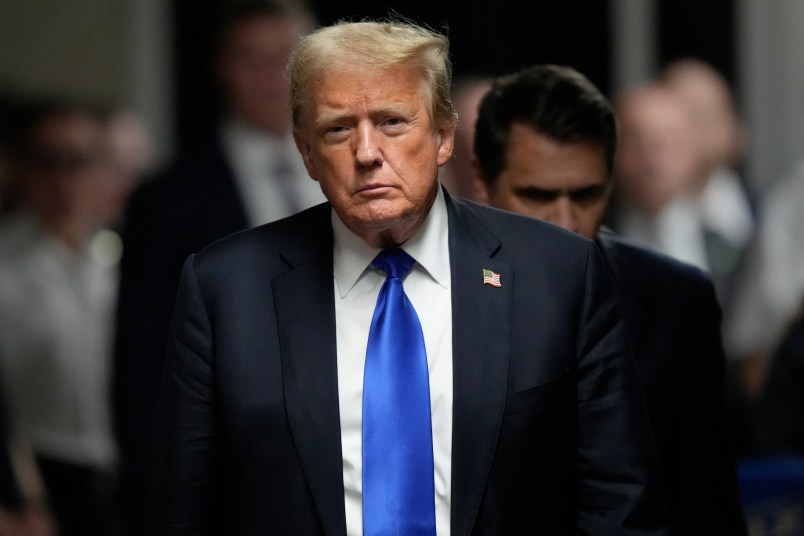Judge Juan Merchan on Tuesday moved former President Donald Trump’s sentencing in the hush money case to Sep. 18, 2024, allowing him to hear arguments from Trump’s lawyers about how the Monday immunity ruling should impact Trump’s conviction.
The sentencing is now less than two months before the 2024 elections.
The move comes shortly after prosecutors from the Manhattan District Attorney’s Office agreed on Tuesday with a request from Trump to postpone his criminal sentencing. Trump’s lawyers on Monday asked that the judge entertain arguments that the Supreme Court ruling on presidential immunity might have bearing on his conviction in the hush money trial, which took place earlier this year.
Sentencing was previously scheduled for July 11, 2024.
“Although we believe defendant’s arguments to be without merit, we do not oppose his request for leave to file and his putative request to adjourn sentencing pending determination of his motion,” Joshua Steinglass, an assistant district attorneys who worked the case, wrote.
In May, Trump was convicted of 34 felony counts of falsifying business records in the New York hush money trial, making him the first former president in American history to be convicted of a felony.
On Monday, in a 6-3 decision, the Supreme Court ruled that presidents get criminal immunity for a wide range of acts they took as president. The decision also found that prosecutors can’t cite evidence involving official acts at trial to prove allegations. Chief Justice John Roberts, who wrote for the majority, did distinguish unofficial acts, writing “there is no immunity for unofficial acts.” In the decision’s review of Trump’s January 6 indictment, however, Roberts did not identify any acts that he believed were clearly unofficial, while he found several that he suggested may be official.
It’s a decision that will undoubtedly have sweeping implications for the indictments Trump is named in, especially those focused on accountability for his actions related to efforts to overturn the 2020 presidential election.
The Manhattan hush money trial was not centered on Trump’s presidency but rather on his actions while he was running for president in 2016. Part of the conduct covered by the trial, however, did take place after Trump was in the White House.
The Trump team argued — shortly after the Supreme Court opinion — that the prosecutors built their case partly on evidence from the former president’s time at the White House.
In a letter to Judge Merchan, Trump’s lawyers argued that his conviction must be thrown out based on the Court’s decision, asking him to postpone the sentencing while he reconsidered the results of that trial.







No appeal can be made until a sentence is rendered … correct?
So process goes in to limbo - ?
Still convicted of FELONIES - and sentencing pending …
GOP will nominate a convicted Felon - unless Trump can somehow get Federal judge to bulldoze into the whole process on an “emergency” basis & invoke Federal supremacy over state jurisdiction - and justify overriding conventional process - for “imperial President” reasons
Sentencing is a formality. To apply the current ruling I think would be ex post facto.
Speaking of Crime, Paul Krugman recently wrote an informative article.
It’s obvious to me that because tRump signed the checks to Cohen while sitting in the Oval they were official acts.
Fuck. That’s all I got.